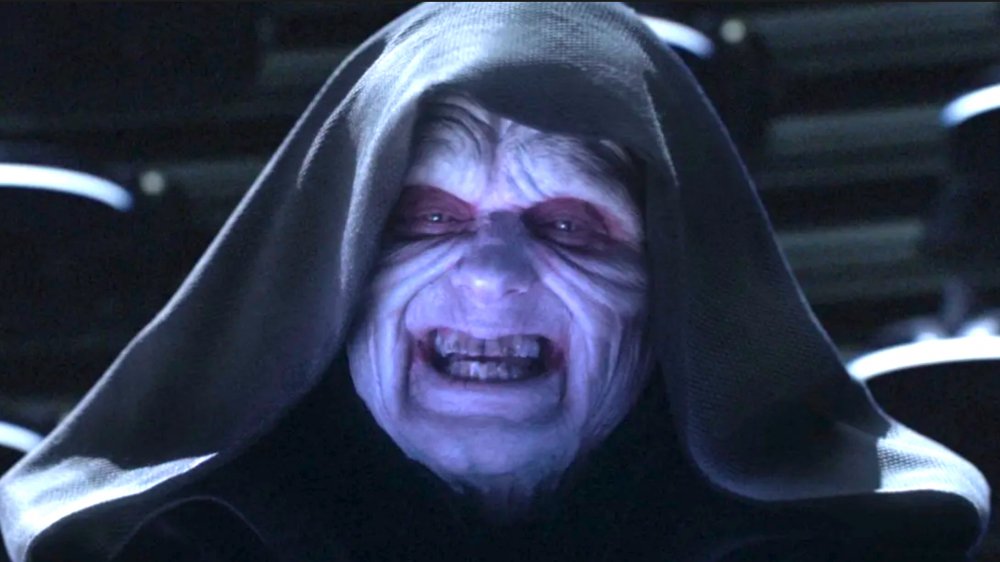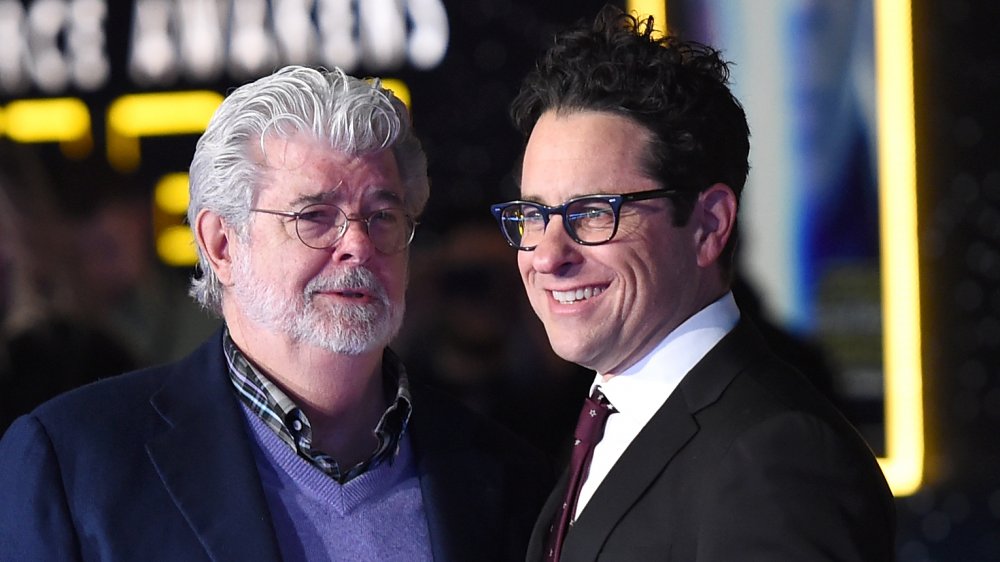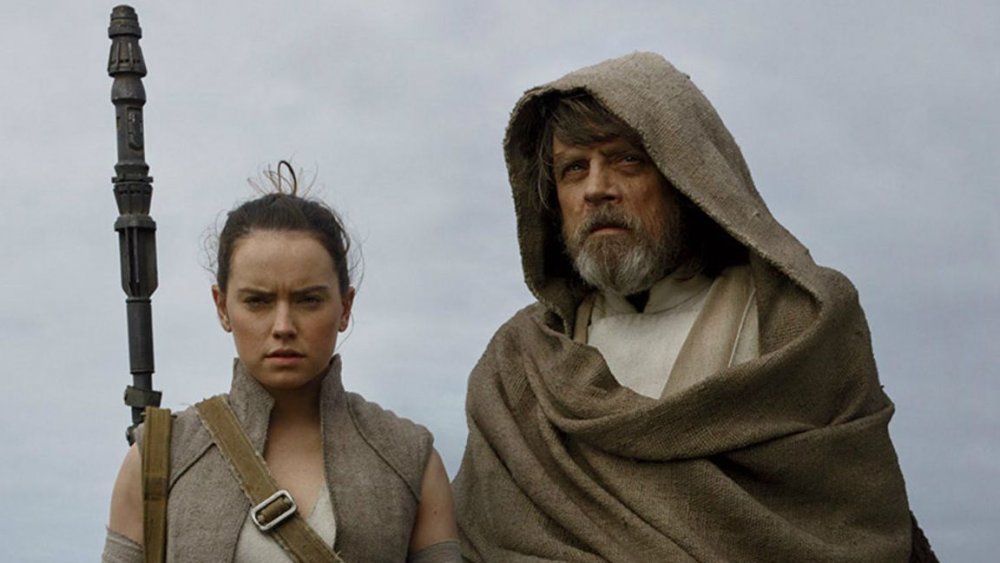Was George Lucas Actually Angry About Palpatine's Return In Rise Of Skywalker?
Star Wars fans may be tough to please, but the creator of the beloved franchise is even tougher.
According to rumor-mongering website We Got This Covered, George Lucas wasn't just iffy on Star Wars: The Rise of Skywalker writer/director J.J. Abrams' decision to bring back Emperor Palpatine for the concluding chapter of the Skywalker Saga — he was downright peeved.
Of course, WGTC cites only its ever-anonymous sources — but we have to say, this squares pretty nicely with remarks made in the past by actor Ian McDiarmid, who has now portrayed the nefarious Emperor in all three trilogies. Speaking with Digital Spy at the U.K. premiere of Rise of Skywalker, McDiarmid indicated that so far as Lucas was concerned, Palpatine was done after being chucked down a shaft on the exploding Death Star II at the end of 1983's Star Wars: Return of the Jedi.
"I thought he was dead," McDiarmid said. "Because when we did Return of the Jedi, and I was thrown down that chute to Galactic Hell, he was dead. And I [asked Lucas], 'Oh, does he come back?' And [Lucas] said, 'No, he's dead.' So I just accepted that" (via IndieWire).
He may have, but Abrams did not. According to director Colin Trevorrow, who was initially tapped to direct Rise of Skywalker, Emperor Palpatine's return was among Abrams' first contributions to the project after he was brought back on board to replace the Jurassic World franchise mastermind, who departed in late 2017 (but still retains a story credit on the picture).
It wouldn't be the first time Lucas was displeased with Abrams' work
Also lending credibility to the report is the fact that Lucas is known to have not been totally psyched about Abrams' work on Star Wars: The Force Awakens, which he felt didn't take enough chances. (Fans might counter that the prequel trilogy is proof that Lucas tends to take a few too many chances, but that's neither here nor there.)
Disney CEO Bob Iger speled this out in his recent memoir, The Ride of a Lifetime: Lessons Learned From 15 Years As CEO Of The Walt Disney Company. While Iger acknowledged that it probably didn't help that Lucas was still having some difficulty at the time with having relinquished control of his life's work, the creator's criticism was pretty blunt.
"Just prior to its global release, [Lucasfilm president Kathleen Kennedy] screened The Force Awakens for George," Iger wrote. "He didn't hide his disappointment. 'There's nothing new,' he said. In each of the films in the original trilogy, it was important to him to present new worlds, new stories, new characters, and new technologies. In this one, he said, 'There weren't enough visual or technical leaps forward'" (via ScreenRant).
Lucas wasn't the only one who thought so; The Force Awakens has been criticized early and often for essentially being a remake of Star Wars: A New Hope. At times, though, it can seem like rehashing the original trilogy is exactly what fans wanted from the sequels; the only one of the movies to gamble with bold narrative choices is the one they most often criticize, and it also happens to be Lucas' favorite.
George Lucas was a bigger fan of The Last Jedi
Of all the sequel films, Lucas responded most favorably to The Last Jedi, which was co-written and directed by Rian Johnson. It's probably not a coincidence that The Last Jedi contains the most story elements from Lucas' original treatments for the sequels of any of the three films, and the fewest recycled plot points from previous movies in the series.
While Lucas has never commented on the flick publicly, multiple outlets reported after The Last Jedi's release that the creator had spoken with Johnson. According to one of Lucas' representatives, Lucas was "complimentary," and told Johnson that he thought the film was "beautifully made."
The vast majority of critics felt the same way, although The Last Jedi has proven to be extremely divisive among the fandom. Those same fans, though, have also taken Rise of Skywalker to task for being too preoccupied with course-correcting many of The Last Jedi's narrative choices (such as the issue of Rey's parentage, to name just one), and for sacrificing coherence in the interest of cramming in overwhelming amounts of fan service-y details.
It's almost as if the vast majority of Star Wars fans don't know what in the heck they want, and Disney and Abrams' efforts to appease them would have fallen flat in any event. Say what you will about Lucas' prequel films; they may have featured clunky writing, terrible acting, and even worse CGI, but at least they were built on a consistent vision that Lucas stuck to, for better and worse.


